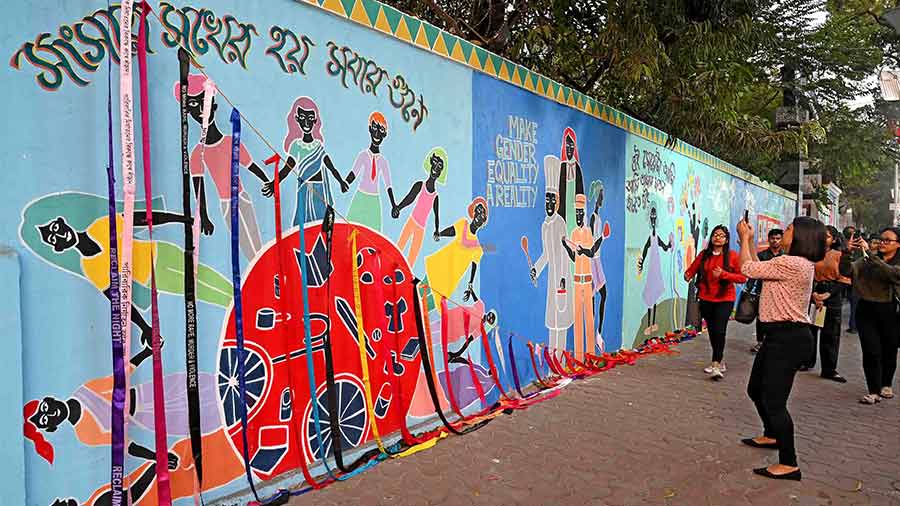Swayam, a women’s organisation working for women’s rights, empowerment and rehabilitation in association with the Women's Studies Centre, Lady Brabourne College, Kolkata, inaugurated “Reflecting Equality – Creating a Gender Equal World” – a mural across the main gate of the college on November 25.
This work of art was tirelessly created by women survivors of violence, students of the college under the guidance of professional artists.
The inauguration was preceded by a panel discussion by Shiuli Sarkar, principal, Lady Brabourne college; Rituparna Sengupta, award-winning actor and producer and alumnus of the college; Alokananda Roy, internationally acclaimed exponent of classical dance and social reformist; Parween Hasan, vice-chancellor, Dhaka Central Women’s University; Amrita Dasgupta, director, Swayam; and Rukmini Chakravarty, artist.
The mural, inaugurated on November 25, is marked as The International Day for the Elimination of Violence against Women. It was an initiative to start a 16-day campaign which would end on December 10 on Human Rights Day. The crux of the campaign is to spread the message about gender equality.
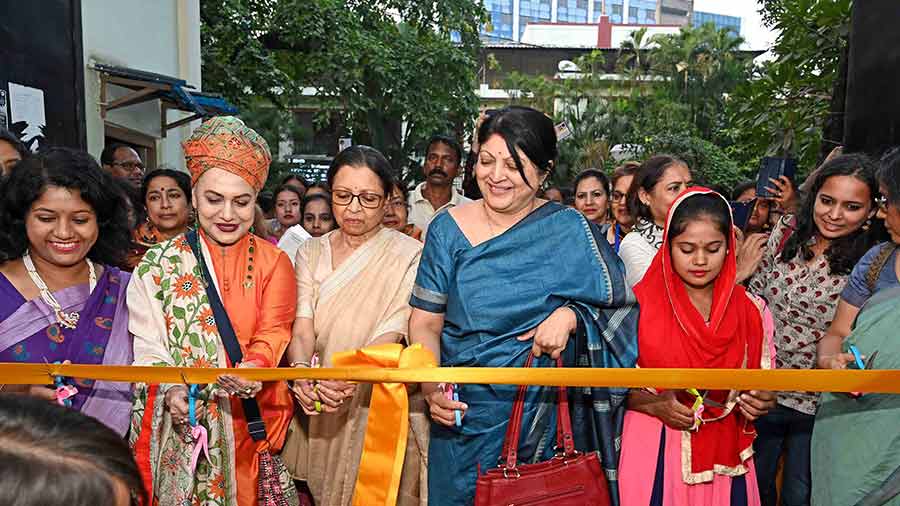
Alokananda, danseuse and social reformist, Shiuli Sarkar, principal, Lady Brabourne College, and Parween Hasan, vice-chancellor, Dhaka Central Women’s University, inaugurate the wall mural
Over 313 individuals have showcased their perception of equality in a contemporary world through the mural. The artwork will enable passers-by to notice the same and initiate a dialogue.
My Kolkata brings to you moments from the inauguration.
Shiuli Sarkar, principal, Lady Brabourne College, in her welcome address said, “Our students, (since the inception of the Women’s Studies Centre) have been sensitised consistently in a number of gender-centric issues particularly in bringing out gender equality. We now have given expression through painting to their thoughts and ideas on a gender equal world. These have been portrayed in the form of a mural on the outer walls of our college. It is a wonderful endeavour in which both our students and Swayam’s team of artists have actively participated following a series of workshops.’’
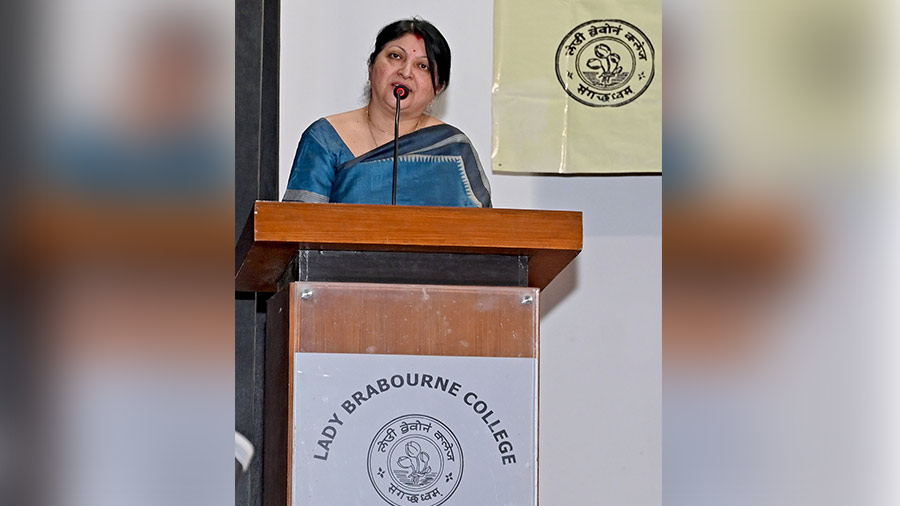
Shiuli Sarkar addresses the audience
Amrita Dasgupta, director, Swayam, spoke on how Swayam, through arts, has been bringing about a change in the society. “Swayam has been working with women survivors of violence since somewhere there has been a basic belief that there is strength and resilience in every woman despite what she has gone through. So, we believe in looking at them as survivors and taking them through a journey of empowerment and becoming the agents of change. We have our music group, theatre group and a magazine. There is a constant belief that every woman has creativity in them. Using art has been a constant aspect of Swayam’s work.’’
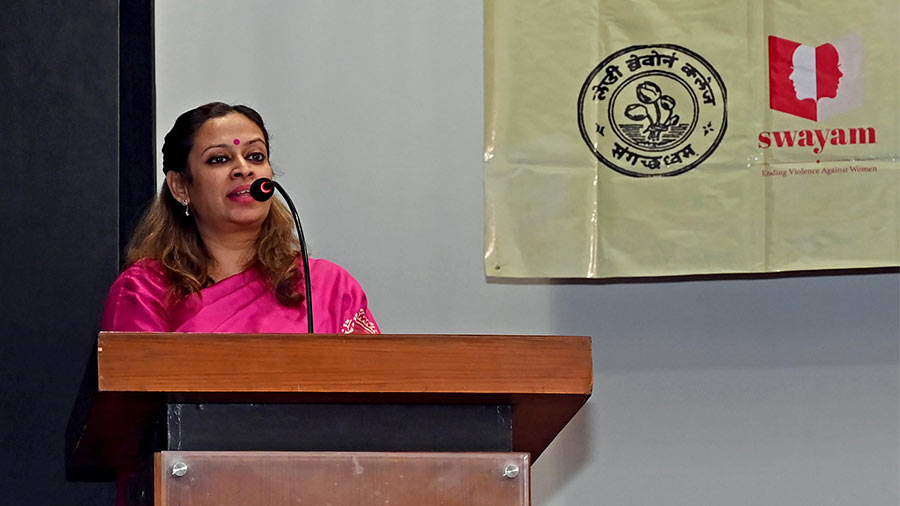
Amrita Dasgupta at the inauguration
Rituparna Sengupta, award-winning actor, producer and alumnus of the college focused on how she uses films to talk about gender. She said, “This is such an important topic and it needs to be addressed in the right perspective. It is even more important for me (today) because my movie (Mahisasur Mardini) is releasing. It discusses issues related to women, to save women and also about women emancipation.’’
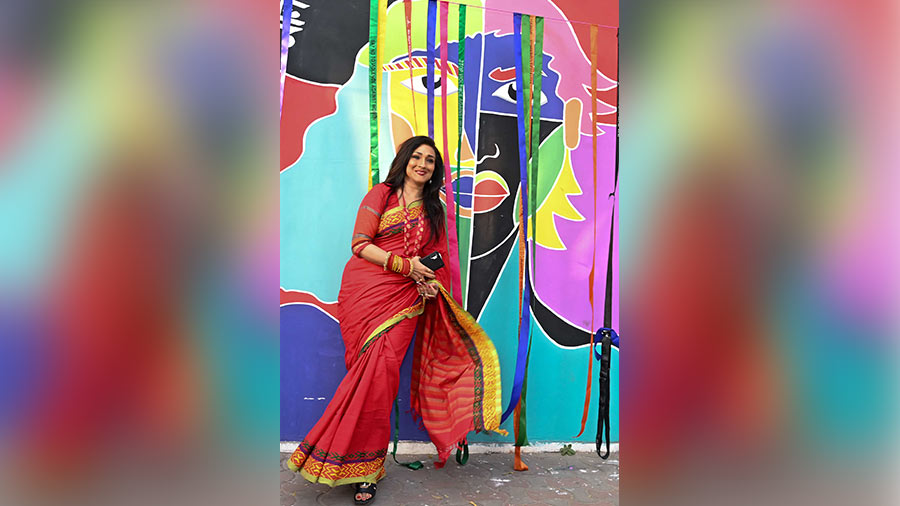
Rituparna Sengupta poses for the camera in front of the mural
Alokananda Roy, internationally acclaimed exponent of classical dance and social reformist, said, “We all want to be involved with the kind of work Swayam is doing. When we talk about gender equality, I think women must stop screaming like becharis. They need to understand their strengths themselves. Nobody can do it for them. Each one must stand for the other but we must realise that strength lies in each one of us. To protect young girls, we also need to sensitise, educate and protect young boys so that they don’t grow up with vengeance which may spill into the society.
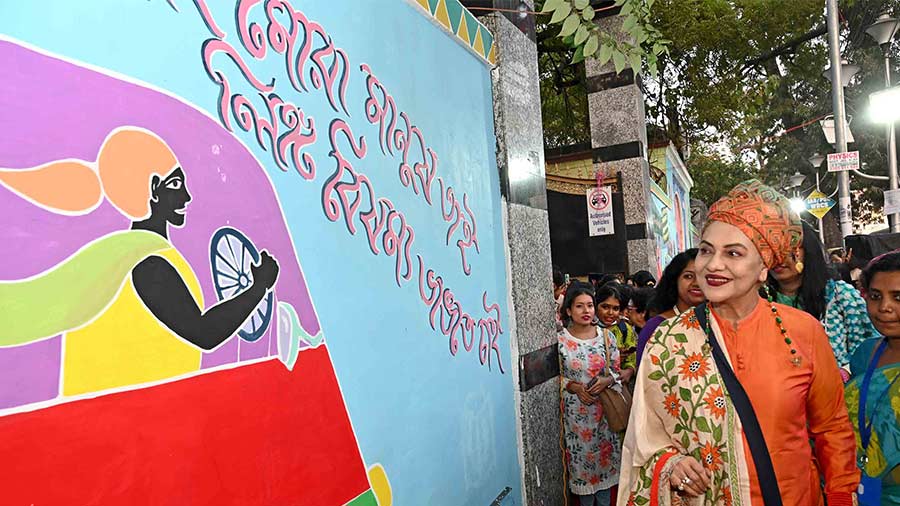
Alokananda Roy views the mural
Parween Hasan, vice-chancellor, Dhaka Central Women’s University, said, “International Day for the Elimination of Violence against Women is celebrated at the Central Women’s University too through discussions and exhibition on Biranganas, the war heroines of Bangladesh and women who were raped during the 1971 war. It took almost 50 years for the Bangladesh government to recognize them as Birangana Naaris Mukti Joddhas.’’
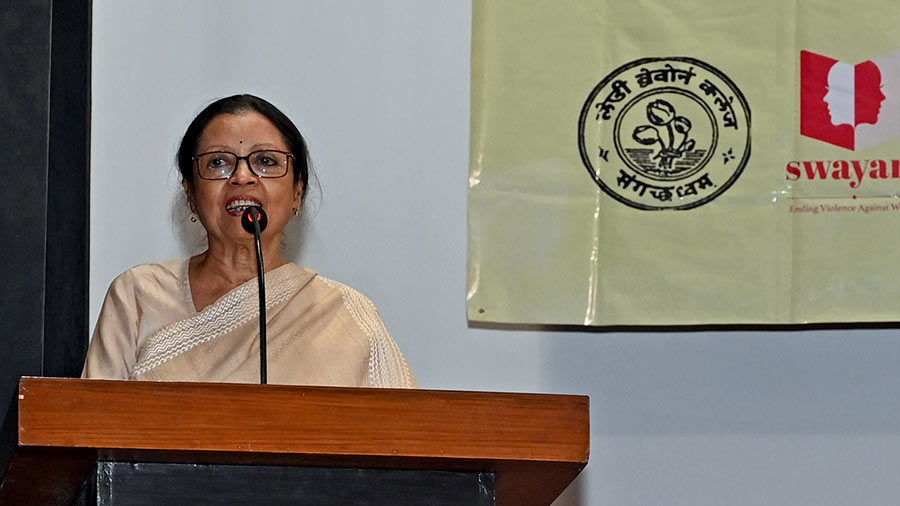
Parween Hasan at the event
Rukmini Chakravarty, artist who led the project, said, “This project was not just about my ideas or how I create an artform. It involved mainly the women survivors and of course the college students and their voices and how I could bring out their feelings in a public domain."
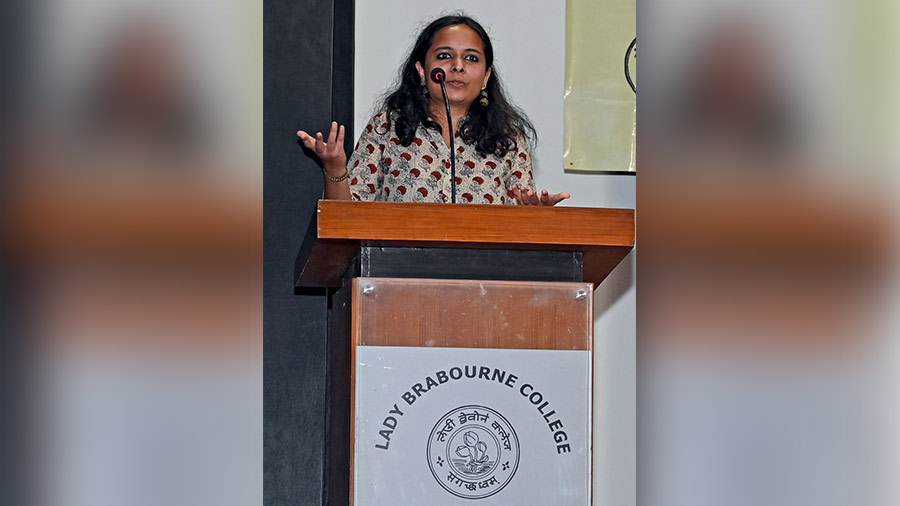
Artist Rukmini Chakravarty at the inauguration ceremony
Chakravarty added, "What is important is to communicate ideas on gender and gender equality to the public so that it is crystal clear to everyone. I was an integral part of this project from the beginning and also heard the stories of women survivors and their personal opinions on gender.’’
